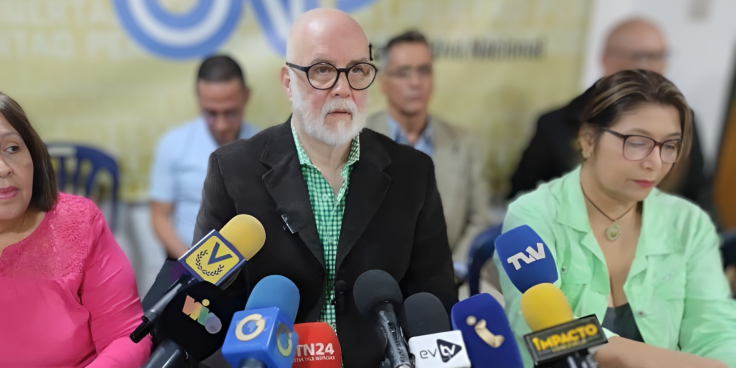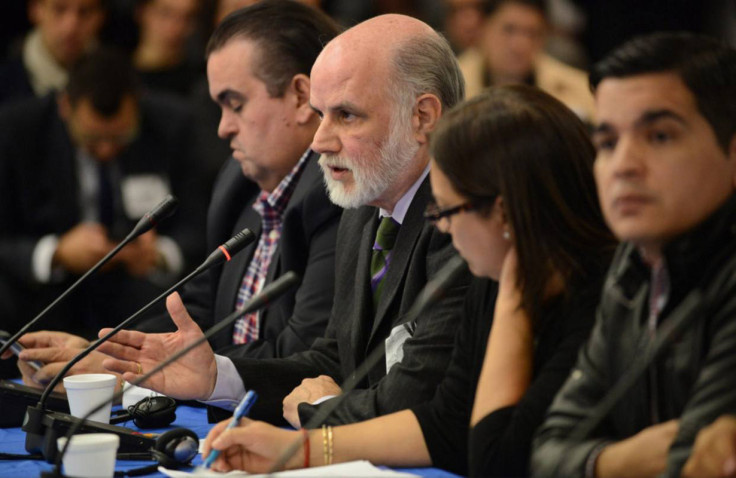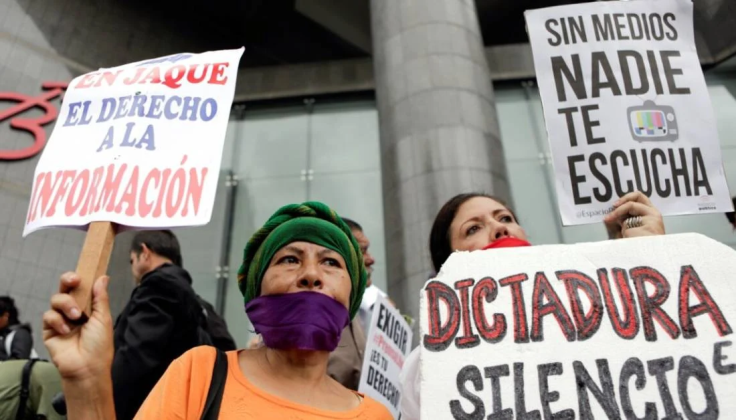
As Venezuela prepares for one of the most consequential elections in its recent history this Sunday, the government has ramped up its censorship efforts. Several independent outlets couldn't be accessed from inside the country throughout the week, raising the the overall number of sites in this situation to 11 since the electoral campaign began on July 4.
The Maduro government's efforts to control the narrative inside Venezuela hasn't been limited to local outlets either. Speaking in a political rally on Monday, Maduro also took aim at international platforms as well:
"Now the operation is being run by hitmen, hitmen of lies: EFE, AFP, AP, CNN and several local broadcasters. We know the history, I've seen that movie. No one is going to tamper with the electoral process. I won't allow them. If they mess up, it will be the last mistake they make in their lives. It will be their last political mistake, justice will be done!"
Tinedo Guía is no stranger to Chavismo's clashes with the media in Venezuela. For years he was one of the most recognizable faces of Radio Caracas Televisión (RCTV), a mainstay of the country's television landscape for over half a century, where he anchored the prime time newscast for 17 years.
He had a front row seat in 2007 when the government refused to renew the channel's broadcast license, a political move that was years in the making as then-all-powerful President Hugo Chavez accused RCTV of playing a pivotal role in a coup against him in 2002.
To put things in perspective, NGO Espacio Público, which promotes freedom of speech in the country, registers at least 400 outlets closing their operation between 2003 and 2022. "The situation allows the communication structure controlled by the State and its network of allied media to dominate almost all existing informational and opinion spaces in the country" the organization explains.
Guía continued working in radio, using the credibility he had fostered for years as a platform to provide the country with timely news and being a counterpoint to the government's agenda.
He then decided to use his knowledge of Venezuela's journalistic landscape to pursue in 2013 another high-profile post as president of the National Journalist's Association (CNP for it's initials in Spanish: Colegio Nacional de Periodistas), a role he still holds to this day. The organization seeks to foster the practice of responsible journalism based on the National Law for Journalism Practice and a code of ethics, grouping more than 27 thousand journalists all over the country.
But in a country like Venezuela, where clashes between the government and the media are an every day occurrence, the CNP's role goes far and beyond, providing timely support to journalists who denounce abuses.
As the presidential elections loom large, completely dominating the country (and the region's) conversation, The Latin Times sat down with Guía to discuss censorship, misinformation and the arbitrary practices of the Maduro regime against journalists in Venezuela. The interview has been edited for clarity and translated.

What do you think is behind the blocking of media outlets this week, just days away from the elections?
The message is very clear: it is a message of fear, intimidation, to temporarily freeze the information that these outlets provide. They wish to dismantle the sources of news that still spark communities in this country. Traditional media has been shut down because of all the pressure they receive by Conatel (an agency of the government of Venezuela that exercises the regulation, supervision and control over telecommunications). Conatel has become a sanctioning body rather than a technical one and big outlets have been censoring themselves because they could risk losing their broadcast licenses.
That's actually very worrying: in Venezuela broadcast licenses are granted by the government, not by the State. Therefore it's a discretionary function of those in power, which should not be the case. It should be handled by Congress which should establish the necessary rules and guidelines to obtain radio, TV or any other mass media license to operate in the country.
So what is the official reasoning behind the blockage? What exactly does Conatel claim?
There is no official argument for blocking them. There is no statement from any public official related to communication explaining why they have been blocked. There's a clear intention to generate informational obscurantism in which those who are not aligned with the current government cannot speak the truths they feel they need to say at such a delicate and difficult moment for democracy in Venezuela as the current one.

In past blockages like this one, has there been any administrative process opened against media outlets?
There have been no administrative processes indicating or allowing the affected individuals, institutions, or NGOs to have their day in court, allowing them to raise their voice to justify their existence and demonstrate that they are acting in accordance with the Constitution, which guarantees, in theory, every citizen's right to freely express themselves, to seek information, and to transmit that information to the public, which is ultimately the journalistic duty of all journalists.
It is an arbitrary decision: the guillotine falls, they take away the possibility to communicate, and then they don't grant them the right to defend themselves. It is a dictatorial decision against communication. Consequently, people are left powerless before the all-powerful government of the Bolivarian Republic of Venezuela.
Within this context, how are people in Venezuela staying informed?
These are all measures meant to wear down the population. That is why infociudadanos are taking on such a big role at the moment (editor's note: the word "infociudadano" has been popularized in countries like Venezuela to refer to ordinary people who, without being journalists, use the principles of journalism to communicate what happens in their community). Citizens make use of social media, WhatsApp and then communicate what they believe is happening.
There is clearly a disadvantage in this since these people are not professional journalists and so there is a major risk of misinformation and fake news. In some cases that same context is fertile ground for the government to create an even more confusing environment. For example, some portals that spread fake news which supposedly belong to the opposition are suspected to have been created by government institution. It's a context of confusion that the regime wishes to push so that voters lose motivation heading into the elections.
When a citizen is against a system or a government such as this one, they publish everything they can get their hands on, especially if it supports what they think, without verifying if it's true or not. On the other hand, the government starts to spread rumors as far up as the president claiming there will be a civil war and a bloodbath. The truth of the matter is if we look into research and polls a vast majority are projected to vote against the current administration. Consequently, the government seeks to weaken this by creating great doubts, making people say: "I am not going to vote because nothing will actually change."
Against this, we must seek the truth. That is why we insist that when you receive information you must question the information you receive, contrast it, and try to find primary sources of information. That way you'll encounter better informed friends along the way who will tell you: listen, I'm not sure you should be sending this around.
What can we expect from the CNP this Sunday?
On Sunday, we will have a monitoring center to see how the country behaves, seeking accurate and timely information about what happens in each region, how colleagues work. We have 27,000 affiliates throughout the country, and all the information collected nationally reaches the information center of the College of Journalists through our website. Besides that, there is information via WhatsApp and social media. We will keep a record of the informative behavior of affiliated journalists. Any abnormality will be referred to the authorities and it will be up to them if they give it the attention it deserves.
© 2025 Latin Times. All rights reserved. Do not reproduce without permission.




